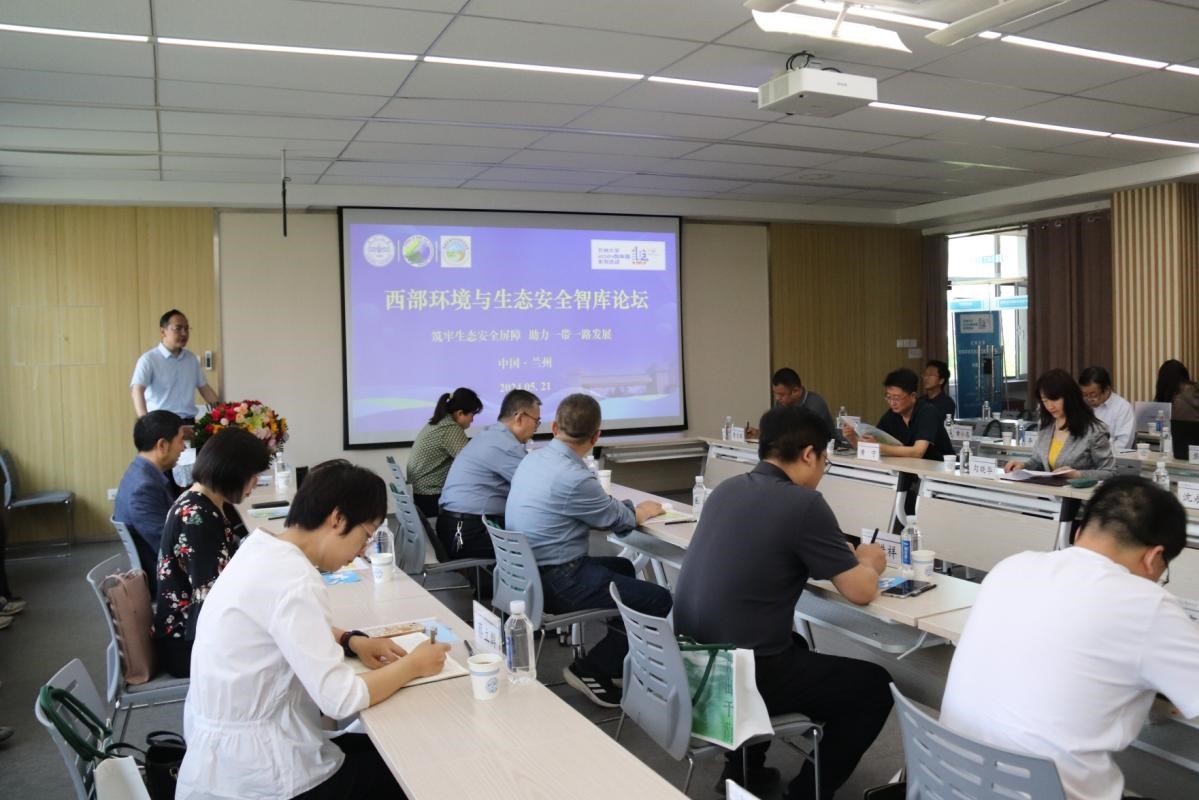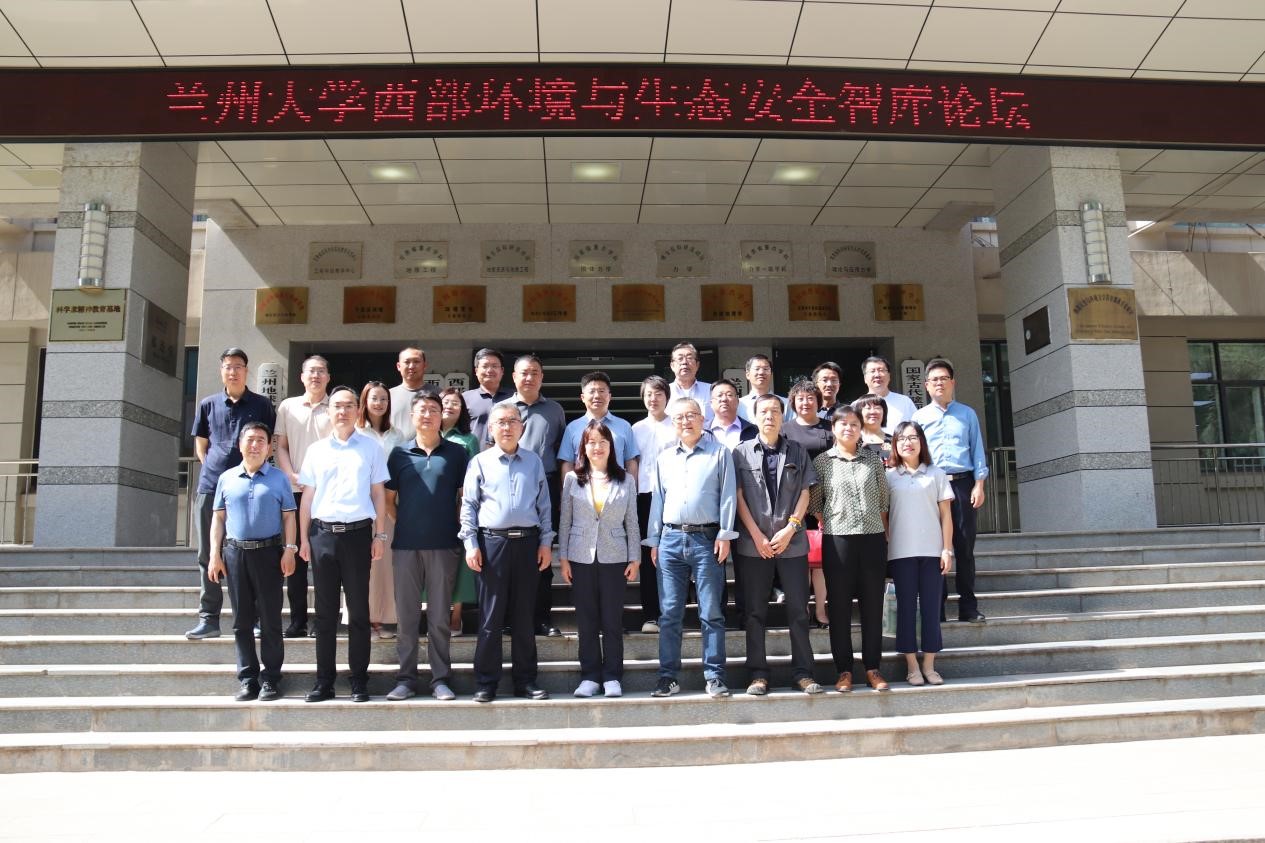On May 21, the Lanzhou University Western Environment and Ecological Security Think Tank Forum was grandly held in the Qilian Hall 502 Lecture Room at the Chengguan Campus (West District). Numerous experts and scholars from government departments, research institutions, higher education institutions, and social organizations gathered to offer suggestions on "Building a Strong Ecological Security Barrier and Supporting the Belt and Road Initiative." This forum was a key event of the Lanzhou University Think Tank Week and was hosted by Lanzhou University. It was organized by eight units: the Western Environment and Ecological Security Think Tank, the Key Laboratory of Western China's Environmental Systems of the Ministry of Education, the Provincial and Ministerial Co-constructed Collaborative Innovation Center for Western Ecological Security, the School of Earth and Environmental Sciences, the School of Atmospheric Sciences, the School of Geological Sciences and Mineral Resources, the School of Civil Engineering and Mechanics, the Institute of Higher Education, and the Pan-Third Pole Environment Center. Dean Li Yu, Professor Wang Xia, Professor Li Ding from the School of Earth and Environmental Sciences, and Professor Huang Ning from the School of Civil Engineering and Mechanics, respectively, chaired different sessions of the forum.

Vice President Gou Xiaohua introduced the attending leaders and guests and delivered a speech on behalf of the university. She emphasized that the participation of personnel from government departments, higher education institutions, and social organizations in this forum helps to form a multidisciplinary, cross-departmental, and cross-field think tank. This is beneficial for the Western Environment and Ecological Security Think Tank to base its academic capabilities, lead consulting research, and thereby provide scientific decision-making consultation and intellectual support for the development of Gansu Province, the western region, and the nation. She expressed the hope that through think tank construction, cooperation and exchanges between universities, government, and social organizations can be further strengthened, jointly promoting in-depth research in the field of western environment and ecological security.
Professor Ding Wenguang, Deputy Director of the Western Environment and Ecological Security Think Tank, Provincial Government Advisor, and Professor at the School of Earth and Environmental Sciences, introduced the current development and future plans of the Western Environment and Ecological Security Think Tank. Deputy Director Lü Wenting of the Information Office of the General Office of the Gansu Provincial Party Committee introduced the principles and requirements for information reporting. Director Cai Liqun of the Think Tank Management Center of the Social Science Division at Lanzhou University discussed the construction ideas and development paths of university ecological think tanks.
Experts and scholars at the meeting presented excellent reports on the forum theme "Building a Strong Ecological Security Barrier and Supporting the Belt and Road Initiative," covering topics such as soil and water improvement in Gansu, water conservation in the source area of the Yellow River, ecosystem service trade-offs in semi-arid valley basins, desertification prevention in semi-arid areas, climate and environmental monitoring and early warning of dust aerosols, ecological compensation, and the impact of human activities on the ecological environment. Participants also received professional training on writing and submitting policy consultation reports.
The successful hosting of this forum further deepened the connection between Lanzhou University and the provincial government's decision-making consultation departments, clarified the urgent needs of Gansu Province's development strategy, and provided more explicit guidance for the future development direction of the think tank.
